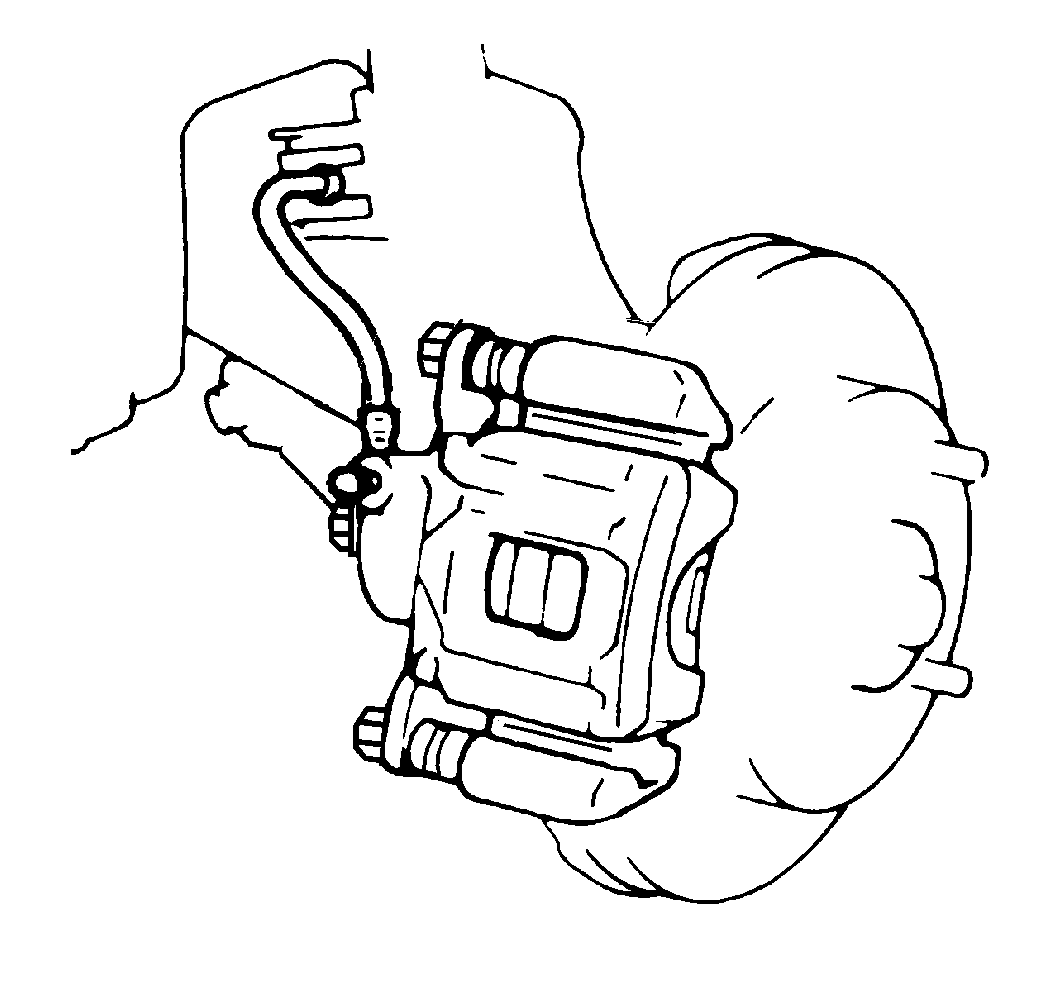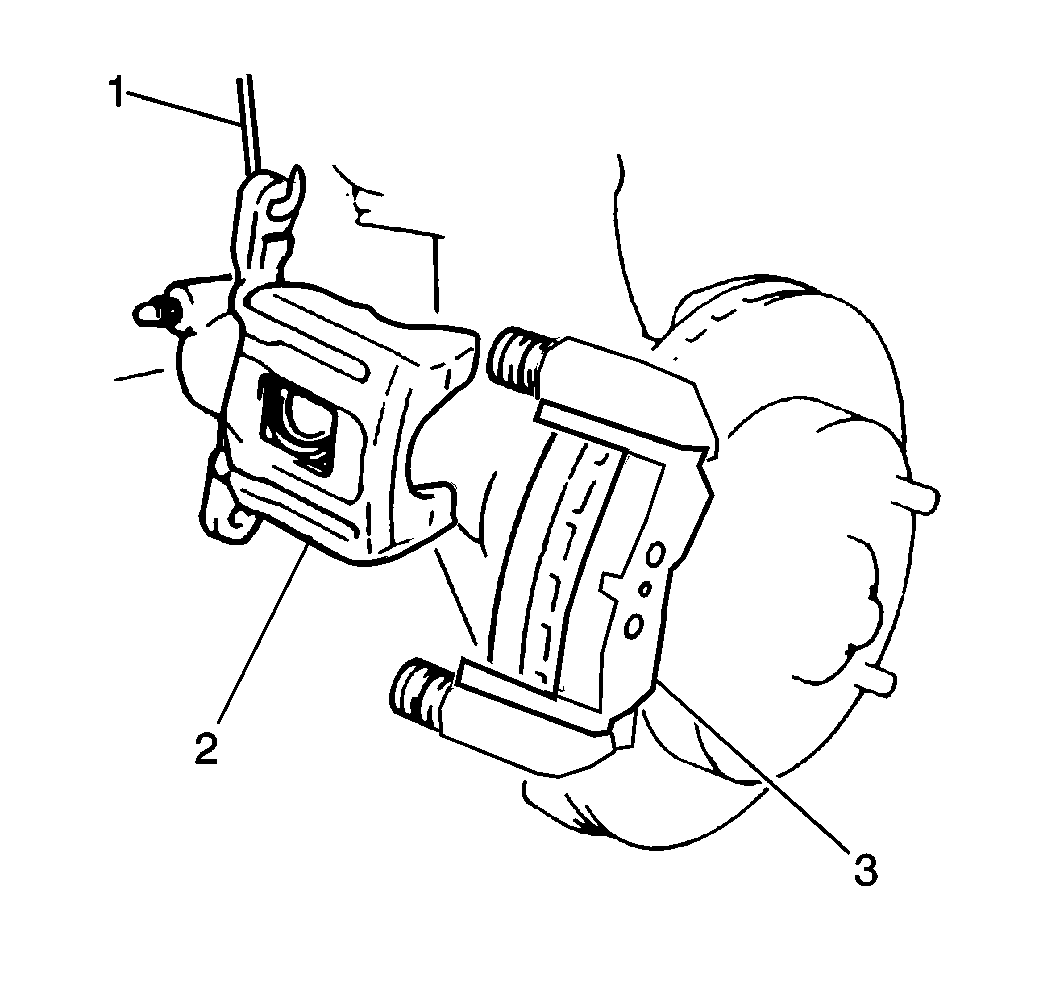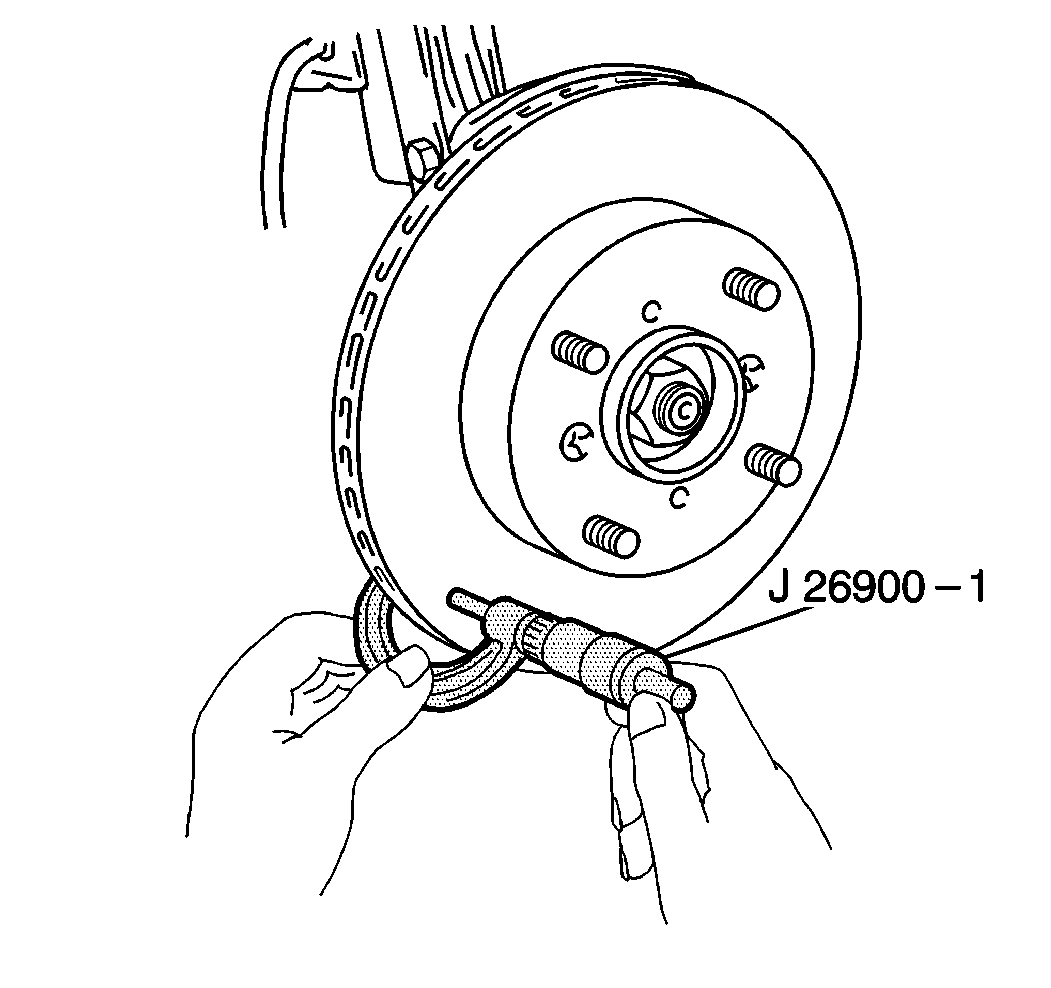For 1990-2009 cars only
Removal Procedure
Tools Required
J 26900-1 Outside Micrometer
- Siphon two-thirds of the fluid from the master cylinder reservoir.
- Raise the vehicle. Support the vehicle. Refer the Vehicle Lifting and Jacking in General Information.
- Remove the tire and wheel assembly. Refer to Wheel Removal in Tires and Wheels.
- Remove the two caliper carrier bolts.
- Lift the caliper carrier, along with the caliper (2) and pads (3). Suspend the caliper with a wire (1) in order to prevent damage to the brake hose.
- Use a J 26900-1 in order to measure the rotor thickness. If the rotor thickness is less than 15 mm (0.59 in), replace the rotor.
- Remove two rotor screws.
- Remove the rotor from the wheel hub. If the rotor cannot be removed by hand, install two 8 mm bolts into the rotor. Tightening the bolts will force the rotor off the wheel hub.



Installation Procedure
- Install the rotor to the wheel hub. Secure with two screws.
- Install the caliper carrier, with the caliper and pads, into position. Secure with two caliper carrier bolts.
- Install the tire and wheel assembly. Refer to Wheel Installation in Tires and Wheels.
- Lower the vehicle.
- Fill the master cylinder fluid reservoir. Refer to Filling the Master Cylinder Reservoir in Master Cylinder.

Notice: Use the correct fastener in the correct location. Replacement fasteners must be the correct part number for that application. Fasteners requiring replacement or fasteners requiring the use of thread locking compound or sealant are identified in the service procedure. Do not use paints, lubricants, or corrosion inhibitors on fasteners or fastener joint surfaces unless specified. These coatings affect fastener torque and joint clamping force and may damage the fastener. Use the correct tightening sequence and specifications when installing fasteners in order to avoid damage to parts and systems.
Tighten
Tighten the caliper carrier bolts to 40-60 N·m (29-43 lb ft).
